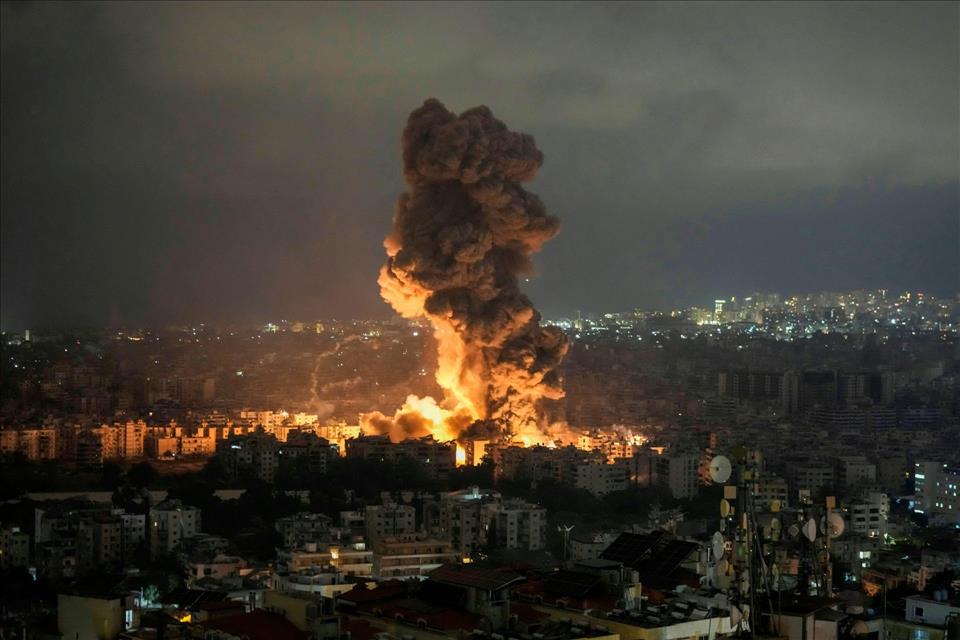
What Israel And Its Neighbours Want Now As All-Out War Looms In The Middle East Podcast
After Israel killed Hassan Nasrallah , leader of Iranian-backed militia Hezbollah, Iran launched a barrage of ballistic missiles against Israel on October 1. As the world waits to see how Israel will retaliate, Israel's military continues to attack Hezbollah in southern Lebanon and in Beirut.
In this episode of The Conversation Weekly podcast, we speak to two experts from the Middle East, Mireille Rebeiz and Amnon Aran, to get a sense of the strategic calculations being made by both Israel and its neighbours at this frightening moment for the region.
Mireille Rebeiz is the chair of Middle East studies at Dickinson College in Pennsylvania in the US and an expert on Hezbollah. She says that since launching its manifesto in 1985 Hezbollah has always positioned itself“in opposition to the existence of the state of Israel”.
Rebeiz says Iran's military goals are completely aligned with Hezbollah's and traces them back to the US's destabilisation of Iraq.
Then followed the 2011 Syrian civil war, in which Hezbollah stepped in to defend the regime of Bashar al-Assad.
Israel's choicesAmnon Aran is a professor of international relations at City St George's, University of London, in the UK, and an expert in Israeli foreign policy. Aran says that for Israel, the past 12 months have been described as an“existential moment”, which has informed the war in the Gaza Strip and now Lebanon.
Aran says there is fierce debate in Israel about what to do now. One side follows the line of thinking of the former Israeli prime minister, Nafthali Bennett, who took to X in early October to say that:“Israel now has its greatest opportunity in 50 years to change the face of the Middle East.” This camp is arguing that with Hezbollah weakened, this is the moment to attack Iran's nuclear facilities.
On the other side, Aran says, are those in the military establishment arguing against attacking Israel's nuclear facilities and instead focus on weakening Hezbollah as much as possible. This camp's reasoning is that:
To hear the full interviews with Mireille Rebeiz and Amnon Aran, listen to The Conversation Weekly podcast.
This episode of The Conversation Weekly was produced by Mend Mariwany. Sound design was by Michelle Macklem, and our theme music is by Neeta Sarl. Gemma Ware is the executive producer.
You can find us on Instagram at theconversationdotcom or via email . You can also subscribe to The Conversation's free daily email here .
Listen to The Conversation Weekly via any of the apps listed above, download it directly via our RSS feed or find out how else to listen here .

Legal Disclaimer:
MENAFN provides the
information “as is” without warranty of any kind. We do not accept
any responsibility or liability for the accuracy, content, images,
videos, licenses, completeness, legality, or reliability of the information
contained in this article. If you have any complaints or copyright
issues related to this article, kindly contact the provider above.


















Comments
No comment